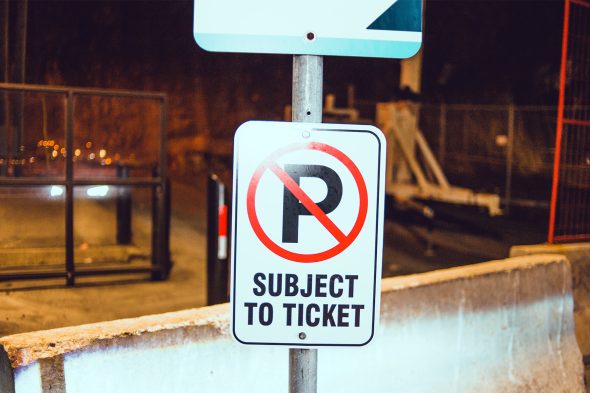UIC report examines cost of erroneous parking tickets in Chicago
Tens of thousands of Chicagoans are routinely issued erroneous parking tickets each year, according to a new report issued by the Institute for Research on Race and Public Policy at the University of Illinois Chicago.
The analysis, which examined nearly 3.6 million parking tickets issued in Chicago between Aug. 2012 and May 2018, where complying depends on time, weather, and location restrictions, identified that more than one in eight tickets (13.2%) were issued in error when the specified conditions did not apply.
Erroneous tickets served as a $35.5 million dividend for the City of Chicago during the six years the analysis covered. The 475,106 erroneous tickets identified in this period by the researchers generated more than $27.5 million in revenue while just over $8 million remains as unsettled debt.
The researchers found only 7% of tickets written under false pretenses are contested, and nine of the 10 community areas with the lowest appeal rates are majority Latino/a/x. More than 20% of inaccurate tickets are subject to late penalties and majority Black community areas represent the 20 community areas with the highest percentage of late penalties tied to flawed tickets.
While paying a ticket or taking the time to contest it may be minor inconveniences for some people, for others these erroneous parking tickets amplify the vulnerability of those already vulnerable, said report co-author Amanda Lewis, director of the Institute for Research on Race and Public Policy.
“The patterns we see here are a textbook example of structural racism. Erroneous tickets are issued across all communities but this troublesome practice has a much more deleterious impact on some because of their already tenuous financial position,” said Lewis, UIC professor of Black studies and sociology, and distinguished professor of liberal arts and sciences.
Other notable findings include:
- Erroneous tickets were issued in each of Chicago’s 77 community areas, but the highest volumes of flawed tickets were disseminated in neighborhoods in and around the Central Business District.
- Workers who report to either the department of finance or department of streets and sanitation combined to write the majority of tickets assessed (80.9%) and together accounted for 75.1% of the erroneous tickets identified.
- Chicago Police officers wrote far fewer tickets overall (18.5%) but committed a higher rate of errors as they accounted for 24.8% of the erroneous tickets identified.
- Errors committed by patrol officers tend to be concentrated in Black neighborhoods. Of the 11 community areas where patrol officers committed more than half the errors, nine of them had majority Black populations.
- Administrative workers committed over half of all errors in 66 of Chicago’s 77 community areas. Their highest percentage of mistakes came in the neighborhoods located mostly on the Northwest Side.
- Over 2,300 erroneous tickets were tied to an individual’s financial ruin. That figure approximates, on average, slightly more than one erroneous ticket per day ending in someone’s bankruptcy.
- 84% of the bankruptcy-linked citations can be geo-referenced to cars wrongfully ticketed in majority non-white communities, and three of the five communities with the most inaccurate tickets connected to bankruptcy are majority Black.
“It’s important to remember that erroneous tickets are not a personal but political problem,” said the report’s lead author Kasey Henricks, assistant professor of sociology at the University of Tennessee at Knoxville and an international fellow at the KWI Institute for Advanced Studies in Essen, Germany. “When one individual owes the city a hundred dollars, it’s the person’s problem. When tens of thousands owe the city a hundred dollars, it’s the city’s problem. The mass indebtedness caused by these tickets is a potential leverage point for restorative justice, if not a debt jubilee.”
Between 1990 and 2017, fines, fees, and forfeits have grown more than 300% despite the city’s population declining by nearly 15% over the same span. These sanctions now generate well over $300 million each year and comprised 5.4% of all own-source revenue for the city in 2017.
Although fines and fees have exploded over the last three decades, much of the revenue from this is funneled back into the system for its preservation or captured by corporate interests through private-public partnerships, according to the researchers.
Private-public partnerships such as the city’s contract with IBM for parking ticketing technology or the transfer of control of the city’s on-street parking meters to a consortium led by the investment bank Morgan Stanley incentivize “more aggressive collection practices that disproportionately penalize low-income drivers,” argues Phil Ashton, UIC associate professor of urban planning and policy, in an expert commentary for the report.
Ashton concludes that “the city’s erroneous tickets are less accidents than they are features of a system configured to generate revenue — for the city and for its financial partners — over ensuring the rule of law.”
Additional co-authors of the report are Chris D. Poulos and Iván Arenas of UIC, and Ruben Ortiz of the Center for Policing Equity.
The project was supported in part by a grant (#2105-32138) from the Russell Sage Foundation; an international fellowship from the Institute for Advanced Study in the Humanities (KWI); and a grant from the American Sociological Association’s Fund for the Advancement of the Discipline.
Future public events will be held with journalists and community partners to share this research and explore how this issue impacts all Chicagoans.
The report is the seventh installment in the Institute for Research on Race and Public Policy’s ongoing series that explores racial justice in Chicago. Visit the institute’s website to access earlier reports.

